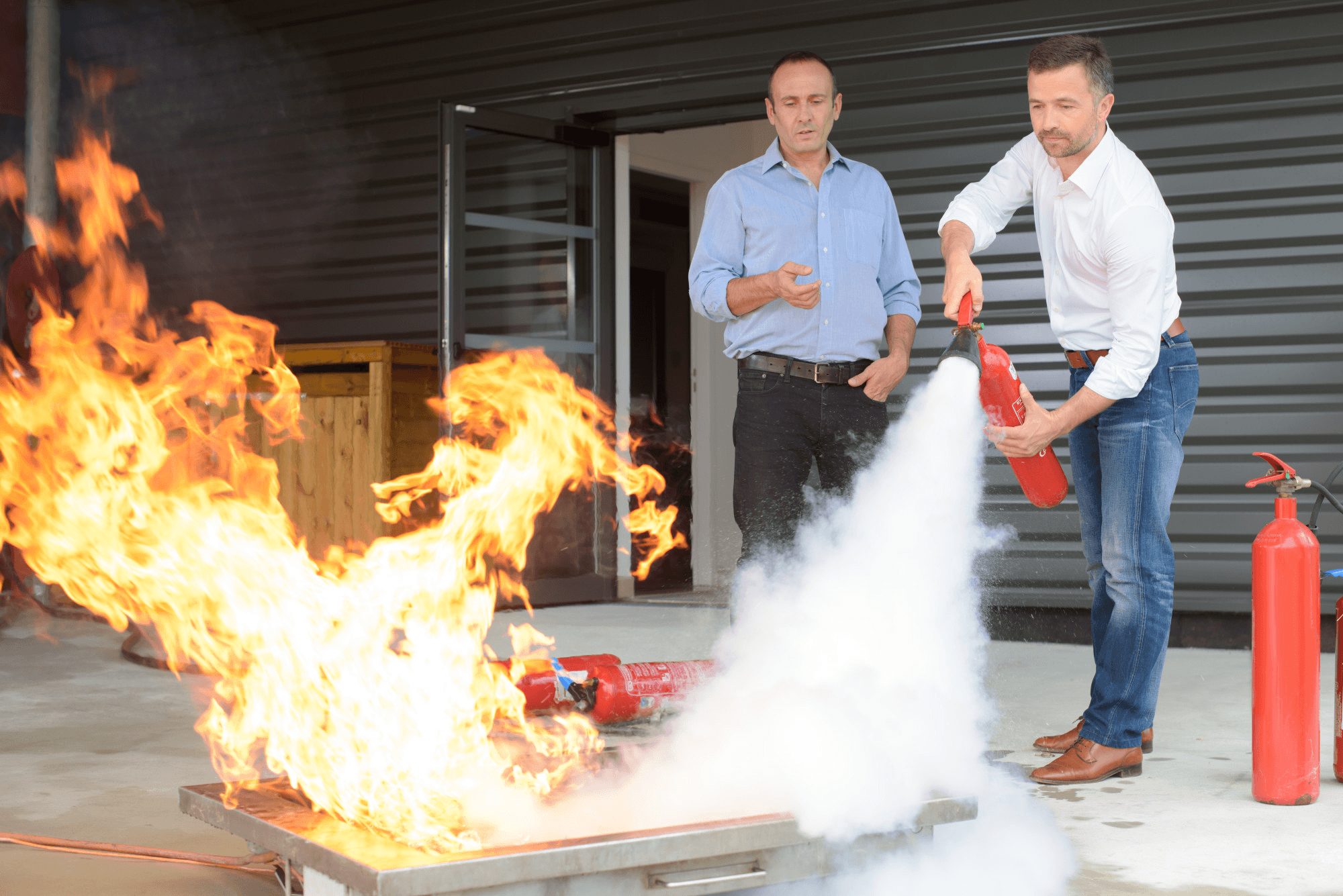Fires are forcing their way through the United Kingdom. From April 2018 to March 2019, England saw more than 182,000 fires.
Every business must prepare for a fire because any flame can kill someone and damage a building. The best way to prepare for the worst is to appoint a fire warden.
What are the standards that fire wardens must meet? What is fire warden training like? What must a warden do to prepare before a fire occurs, and what do they do to respond to an emergency?
Answer these questions and you can find an intelligent and capable employee to protect your office from a disaster. Here is your comprehensive guide.
Fire Warden Regulations
The Regulatory Reform (Fire Safety) Order 2005 provides the regulations for fire safety in offices. The order applies to all offices, places of business, and facilities like warehouses.
Under the order, each office must conduct a fire risk assessment that lays out every risk it faces. Anyone with control over the office is a “responsible person” who must take measures to reduce risks. But a fire warden or marshal has the authority to make decisions on fire prevention.
Every office with fewer than 50 employees must have one warden. An office with 50 to 100 employees must have two. For every additional 100 employees, the office must add one more fire warden.
If an office covers multiple floors, there must be one warden on each floor. Each shift must also have a martial on duty, and any martial on a leave of absence must be covered.
Keep in mind that fire regulations in Scotland and Northern Ireland are different from the regulations in England. If you have multiple offices throughout the United Kingdom, you need to familiarize yourself with each code of rules.
The government strictly enforces all fire safety regulations. A fire warden who fails to follow through on their responsibility can receive a fine or a prison sentence.
Fire Warden Responsibilities
Being a fire warden is a serious undertaking. The warden must perform many tasks on a regular basis. They should have plenty of time and flexibility to meet their responsibilities and attend to their other projects.
Daily
Wardens should walk through the office space at least once per day. They should check there is adequate signage leading up to and surrounding emergency exits. If signs have illuminated parts to them, the parts should be working.
The warden should move any objects in the way of an emergency door or window. No machinery should ever stop in front of the door, even for a momentary pause. The hallways leading up to exits should have no flammable substances in them, including paper.
Wardens should check on areas with heat sources like stoves and ovens. They should remove anything flammable from the area, especially paper and cotton products.
Electrical equipment should receive close inspection as well. The warden should replace cords that have frayed or snapped.
They should catalogue all of their efforts. They can keep a checklist of the areas they visit, and they should write down any repairs that need to be made.
Weekly
Fire alarms should receive weekly tests. To minimize disruption to the work environment, the warden can test the alarms while no one is around. They should check each alarm to see that it is visible and audible from some distance away.
The warden should inspect the area where employees will gather after a fire. They should remove flammable substances and place a bench for medical equipment and people with disabilities to sit down.
A company manager and a warden should talk about fire safety every week. They should look at different ways to keep the office safe, including by modernizing lighting fixtures.
The warden should also touch base with HR and other safety professionals. A fire can be a traumatic episode to talk about. All professionals should understand how to communicate threats without causing anxiety in the workplace.
If the office is in an area at risk for wildfires, the warden must assess how to prepare against them. They should study why wildfires start and how they can evacuate an office away from them.
Monthly
The warden should do some research every month about fire safety products that the office can use. Fire doors seal shut during an emergency, preventing smoke and flames from passing through. They are a good investment for companies that have active eating and cooking areas.
With the help of the office manager, the warden should have a safety talk and demonstration. They should describe how to evacuate a building and tend to burn and smoke injuries. They should also show how to use a fire extinguisher.
All wardens must receive regular training, regardless of their experience. They should receive fire extinguisher training so they know how to put out small fires.
Yearly
The warden should draft a new fire risk assessment at the end of every year. The assessment should report on efforts that the office has taken to minimize fire risks. It should note if any new risks have surfaced, and it should describe ways to resolve those risks.
The report should go to everyone in the office, including senior management. The warden should take the responsibility of sending it out. They can hang up posters and educational materials to detail their report’s key messages.
At least one drill should take place every year. A warden should conduct more if the building is at high risk for fire. If an office performs poorly during a drill, the warden should push for immediate safety measures.
They should invite the local fire department into the office for a safety inspection. They should hand over their draft of the risk assessment for review, and they should make any edits that a firefighter requests.
How to Train as a Fire Warden
The best warden to appoint is someone who has served as a firefighter or a first responder. But a company can select anyone, provided that they can fulfil all responsibilities of a warden.
A warden should take a wide variety of training courses. They should take fire investigation courses so they can help determine the cause and spread of a fire. They should learn how to care for people who suffered from burns and smoke inhalation.
In addition to official courses, wardens should study literature about fire safety. They should be familiar with how the technology their office uses can spark or spread flames. They should have a complete understanding of all aspects of fire awareness, such as the hazards associated with a fire.
When they have received adequate training over a few weeks, the warden can apply for official certification. They then must apply for recertification every three years.
What a Fire Warden Should Do During an Emergency
A warden must spring into action as soon as they hear the fire alarm. They should not assume there is a false alarm, or that someone else will take care of a small fire.
They should evacuate the people around them, caring particularly for people with weak mobility. Once those people are out, they can help with evacuation efforts if conditions seem good.
If a warden is near a fire, they can try to put it out. They must make an effort if they can do so with a fire extinguisher or blanket. They should put out a grease fire without using water.
But if a fire is out of control, they are under no obligation to stay. They may become overwhelmed, and their services may be needed elsewhere.
The warden should focus their initial efforts on evacuation. If someone is injured, they should move them to a safe area and continue helping people out.
Once people are out of the building, the warden should call the fire department. They should do so even if someone else has already done so.
While on the phone with the department, they should do a headcount. If someone is missing, they should tell the dispatcher who they are and what they look like. They can give the dispatcher details on their last known location.
No one should return inside the building until fire officials say it is safe to do so. A warden can guard the door to make sure no one goes inside. While everyone is outside, they can provide aid to injured people.
Get the Best Resources for a Fire Warden
Every company must appoint a fire warden who will receive training on fire prevention. The warden will work daily to inspect the office space and remove flammable materials. They will draft a safety plan with the help of officials.
They must receive training and certification in order to conduct their job. They should take classes on many subjects related to fire safety. During a fire, they should lead the evacuation and contact the fire department.
Get training for your warden today. UK Fire Group helps businesses throughout the United Kingdom. Sign up for our fire warden training courses.





0 Comments